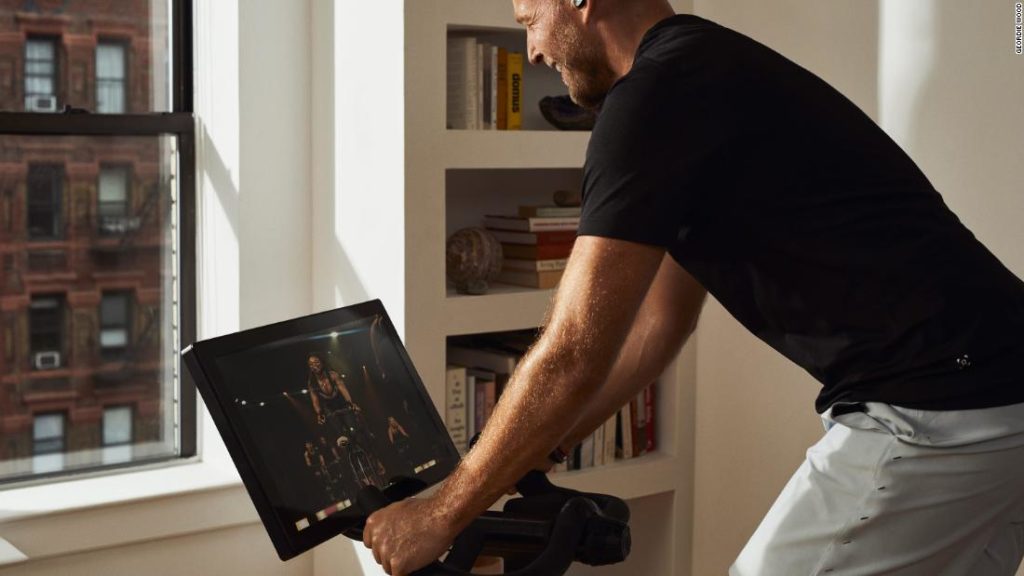Expensive memberships to its roughly 100 gyms across the United States served as Equinox’s primary revenue driver for its three-decade existence. Digital, meanwhile, wasn’t top of mind. That changed last year when the company started selling stationary bikes that streamed SoulCycle classes and launched a $39.99 per month app, called Equinox+, that is loaded with spin classes, meditation, strength training, boxing and even Tom Brady-backed recovery workouts.
The New York-based company is also trying differentiate itself with its “tribrid” model, which includes working out at home through its app, visiting its gyms and exercising outdoors. Equinox is experimenting with outdoor gyms it calls “In the Wild” and has opened 20 “SoulCycle Outside” studios.
Simon Belsham, president of Equinox Media, said its physical footprint and its app is giving the brand an advantage over its buzzier rivals.
“The access that digital gives you to fitness allows you start on the journey, but the physical experience gives you that community, motivation and access to instructors and equipment that really drives that habit,” he told CNN Business. “We really believe that physical and digital are complimentary.”
Gyms are reopening as Covid-19 restrictions are relaxed. Belsham said that the privately held company is “very excited about the speed of which the rebound is happening and that people are willing to come back.” About half of classes that are completed in the app are done in its gyms, he said, reflecting perhaps another permanent change in people’s habits.
The company declined to disclose how many total members the app has.
Equinox has entered a competitive but massively growing space. Online and connected fitness is projected to become a $60 billion industry within the next six years, according to Allied Market Research. That growth is primarily driven by people’s habits being permanently changed by the pandemic.
Equinox’s app launch had a few hiccups. Its original name, “Variis” was quietly scrapped earlier this year in favor of Equinox+. It’s also about $30 per month more expensive compared to Peloton, Apple Fitness+ and other rivals that offers similar fitness classes.
That doesn’t concern Belsham because of the company’s prestige positioning. “We believe what we’re offering is something pretty unique,” he said, pointing to the app’s ability to track a users’ health metrics and curate classes with high production value.
“The quality of the content matters a lot,” he said. “We think we’ve created the ‘HBO of fitness’ because on HBO there’s no bad programs.”
(HBO and CNN are both owned by WarnerMedia.)
You may also like
-
Afghanistan: Civilian casualties hit record high amid US withdrawal, UN says
-
How Taiwan is trying to defend against a cyber ‘World War III’
-
Pandemic travel news this week: Quarantine escapes and airplane disguises
-
Why would anyone trust Brexit Britain again?
-
Black fungus: A second crisis is killing survivors of India’s worst Covid wave

